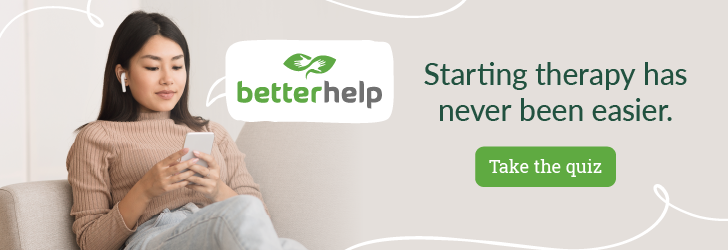Full Disclosure: Clicking on these links could mean a tiny commission for me, at no extra cost to you.
In a world where physical health often takes center stage, the pivotal role of mental wellness is frequently overlooked. Yet, it holds the key to unlocking our full potential for a life of vibrance and fulfillment. Mental health is an integral part of our overall well-being. It influences every aspect of our lives, from personal relationships to career success and physical vitality. For too long, society has treated mental and physical health as separate entities, neglecting theimentalr profound interconnectedness. However, a growing research and real-world evidence has highlighted the transformative power and importance of mental health. And not only for individuals but also, for entire communities and economies.
The Integral Link Between Mental and Physical Health
It is hard to distinguish between emotional and physical health as both work on a reciprocal basis, giving each other the feeling of a boost or a knockout. The two-way link between mental and physical health is not new and it has been confirmed by multiple studies.
Certain mental health conditions can manifest as physical conditions. They can also increase the risk of developing stroke, heart disease, and diabetes. On the other hand, these mental health issues can become aggravated due to the symptoms of physical diseases, creating somewhat of a miserable cycle.
A study just released has made a shocking conclusion that individuals with undiagnosed depression have a heart death risk of 25% to 40% more. This highlights the significant impact of mental health on critical bodily systems and the potential for preventive measures.
Apart from this, it is also important to acknowledge the deep connection that exists between mind and body. By doing this, we can embrace a comprehensive approach in medical care systems wherein we consider both these components in order to attain maximum health.
The Economic and Social Benefits of Prioritizing Mental Health
This approach goes way beyond the single-person level and has great social and economic implications. The care for mental health issues of employees is surely connected with better productivity, less absenteeism, and more engaged employees.
World Health Organization (WHO) research shows that depression and anxiety cause the world economy $1 trillion of lost production every year through among other things, reduced productivity. Through the implementation of mental health programs, companies can mitigate these losses and encourage a healthier organization with more ingredients for productivity.
Turning to the wider society, increased investment in mental health services generates enormous savings in healthcare expenditures. A report was published that claimed that the return on $1 invested in evidence-based mental health programs was $4 saved to the public by reducing the spending on the justice and the health sector.
Also, mental health projects are important as they could contribute to the unity of individuals within the region and a better quality of life. They can do this by making sure that people have sufficient access to the support that they require, which makes them better able to maintain healthy relationships, to be part of society and to live a good life.
Strategies for Prioritizing The Importance of Mental Health
Despite the fact that organizational and national activities are vitally important, everyone is able to decide on their own mental prosperity. Through the systematic application of preventive practices, we can live healthier lives as focus on the importance of mental health.
Mindfulness and Meditation
Numerous studies have shown the effectiveness of these methods in improving well-being, and mindfulness practices like meditation have been proven to reduce the levels of stress, anxiety, and depression. By practicing mindfulness and acceptance, essential tools for developing emotional intelligence, individuals can acquire skills such as confidence and adaptability.
Skills of mindfulness allow an individual to monitor and notice their feelings and thoughts without prejudice, therefore giving the person calmness and spacing leading to a better appreciation of life’s worries.
Exclusive Offer: Access Hundreds of Mindfulness Meditations with the #1 Mindfulness App
Therapy and Counseling
Through consulting mental health professionals, such as a professional therapist or counselor, who are the most invaluable people to go to when you experience a mental health challenge, one can be given helpful navigation in that aspect. Studies of the cognitive approach, such as CBT, provide methods for people to manage their symptoms and change the way they think for the better.
Cognitive Behavioral Therapy, a type of counseling, involves identifying and changing thoughts and behaviors that may contribute to mental health issues. This therapy targets the individual’s inner power to deal with problems differently and eventually improve their coping strategy.
Exercise and Healthy Lifestyle
In contrast, a healthy lifestyle – characterized by being active and eating well, is beneficial for mental health. Regular exercise can make you feel happier and less stressed in a few key ways:
- It causes the release of endorphins in your mind, which are particularly feel-good chemicals that are known to infuse joy into your life.
- It can indeed stand as a perfect tool for fighting feelings of depression and anxiety.
- It gives your personal confidence and robust self-esteem a boost.
- It implies better sleep and is thus a great mental wellness component.
In general, by incorporating physical activity and healthy practices into your lifestyle you can make a significant impact in mind and help it stay in good condition. Is it maybe something as simple as being more active, eating well, and making time to rest that makes the greatest difference in your mental health?
Seeking Help and Breaking Stigma
Perhaps the most crucial step in prioritizing mental health is acknowledging the need for support and seeking help when necessary. By destigmatizing mental health issues and fostering open conversations, individuals can overcome barriers and access the resources they require.
For those struggling with substance abuse or addiction, seeking out reliable addiction resources can provide invaluable support and guidance on the path to recovery. Prioritizing your mental health often involves a multifaceted approach, incorporating various strategies tailored to your individual needs and circumstances.
Whether it’s through mindfulness practices, professional therapy, or seeking addiction resources, taking proactive steps to nurture your mental well-being can have a profound impact on your overall quality of life.

The Role of Technology in Supporting Mental Health
Technology is a crucial assistant of networking in the digital world that is working closely with mental health programs. The new tools which range from mobile to web apps to online therapy platforms are the undeniable breakthroughs that make mental health support more engaging and easier to access.
Mental Health Apps
A wide range of mobile apps can provide you with mindfulness exercises and mood measures, as well as cognition-behavior techniques for managing stress, anxiety, and depression. Apps such as Calm, Headspace, and MoodKit give a bouquet of handy instruments that can help you get better at being mindful and keeping your emotions.
Online Therapy and Counseling
Owing to the development of better online therapy platforms like BetterHelp and Talkspace, it is now convenient for everyone to have the right professionals help them through safe video chats or chat conversations. This increased the accessibility by eliminating obstacles such as distance dependence and program scheduling that could have barred participation earlier. You can even do group therapy online now with platforms like Grouport.
Telemedicine and Virtual Care
Through development, telehealth was evolved to involve mental health support that can be received at home. This approach is most beneficial for those living in regions where there are no mental health specialists in the local or the immobile ones.
Indeed, technology has not yet been able to replace what traditional face-to-face therapy and medical consultation are capable of, but it has become a reliable and useful sidekick rendering it possible to reach out to people, anytime and anywhere.
Policies and Practices for Promoting Mental Health in Workplaces
Along with the ever-changing dynamics that are taking shape in the field of work, the organizations discover the magnitude that mental health awareness carries. Additionally, through the adoption of the supportive policies and practices, the employers can promote a mentally healthy environment that will be beneficial to the employees as well as the organization. The employer can encourage employees to look forward to the workplace rather than avoid it.
Flexible Work Arrangements
Offering a variety of work arrangements, e.g., remote work or flexible schedules, is an effective way for employees to recharge their batteries and get a balanced life. As a result, stress levels go down and workers’ chances for mental health problems are minimal.
Employee Assistance Programs (EAPs)
Employee Assistance Programs (EAPs) orientate interventions toward employees, and their confidential counseling, resources, and support services supply both tools to manage private and work-related difficulties that influence mental state.
Mental Health Training and Education
Mental health literacy training and education are effective since they enable managers and employees to be able to understand the signs of a mental health issue and how to help one another to deal with the situation in the workplace leading to a stress-free environment.
Open Dialogue and Destigmatization
When there is an open conversation about mental health, employees who are also appreciative should aggressively work to reduce the prejudice against these issues to foster a culture of trust and acceptance, where workers are comfortable requesting help without the fear of judgment or consequences.
Here’s a comparison table highlighting the potential benefits of implementing mental health initiatives in the workplace:
| Benefit | Without Mental Health Initiatives | With Mental Health Initiatives |
| Employee Productivity | Lower productivity due to mental health issues | Increased productivity and engagement |
| Absenteeism | Higher rates of absenteeism related to mental health concerns | Reduced absenteeism and improved attendance |
| Healthcare Costs | Higher healthcare costs due to untreated mental health issues | Lower healthcare costs and reduced disability claims |
| Employee Retention | Higher turnover rates due to burnout and unaddressed mental health challenges | Improved employee satisfaction and retention |
| Company Culture | Stigma and lack of support for mental health issues | Positive, supportive, and inclusive company culture |
Prioritizing mental health in the workplace allows organizations to create a win-win scenario, fostering a healthier and more productive workforce while enhancing their bottom line.
Frequently Asked Questions
1. What are the signs that I might be neglecting my mental health?
Some common indicators of mental health issues include persistent feelings of sadness, anxiety, or irritability, changes in sleep patterns or appetite, loss of interest in activities you once enjoyed, difficulty concentrating, and physical symptoms like headaches or fatigue. It’s important to recognize these signs early and seek professional help if needed.
2. How can I talk to my loved ones about mental health without feeling judged?
When initiating conversations about mental health with loved ones, approach the topic with empathy and compassion. Use “I” statements to express your concerns, and avoid accusatory language. Provide a safe, non-judgmental space for them to open up, and remember that seeking help is a sign of strength, not weakness.
3. Are there effective ways to manage mental health without medication?
While medication can be an effective treatment option for some mental health conditions, there are various non-pharmacological interventions that have proven beneficial. These include cognitive-behavioral therapy (CBT), mindfulness practices, exercise, social support, and lifestyle changes like improving sleep hygiene and nutrition. A combination of these approaches, tailored to individual needs, can be highly effective in managing mental health.
Conclusion: The Imperative of Mental Health in Achieving Overall Wellness
Prioritizing mental wellness is not an individual’s personal choice any longer but a necessary measure for reaching total wellness of workplaces, and persons, as a whole. The evidence is overwhelming: ignoring the importance of mental health comes with unacceptable costs – financial and non-financial.
On the other hand, mental health leads to an increase in productivity and patient compensation, taking less health care expenses, bridging societies and improving standard of life. Through removing the stigma and illusions about mental health issues, empowering communication and building the wholeness of support services, we can design a world where the citizens’ well-being is respected and supported.
Additional Resources
At Anxiety Gone, we believe in healing together. We’ve partnered with trusted wellness organizations to bring you the most effective tools, insights, and support. Some links may earn us a commission — always at no extra cost to you.
Join The Club
Connect with our private self-care community for daily support, exclusive tips, and inspiration. Join us today
Talk Therapy
Get matched with licensed therapists online through BetterHelp and begin your healing today. Start now
Hims/Hers
Receive personalized, affordable mental health care + medication from home — no insurance required. Learn more
Mental Health, Right to your Inbox
Subscribe to our newsletter for a place to rest your mental health and find ways to support your journey. Sign up
Emotional Freedom Technique
Tap your way to calm with scientifically backed stress relief. Our readers receive a 14-day free trial! Try EFT now
Mindfulness App
Access 2,000+ guided practices to support your mental health wherever you are + exclusive discount when you upgrade Try it
Online Breathwork
Experience calm and reset your nervous system with guided sessions and receive your first month free . Get started
Find a Helpline
If you need immediate support, visit our directory to find help near you. See helplines









